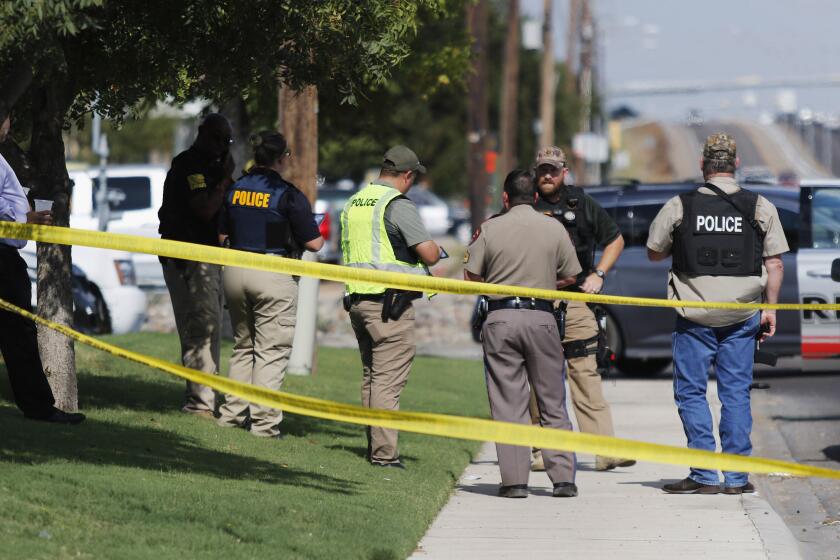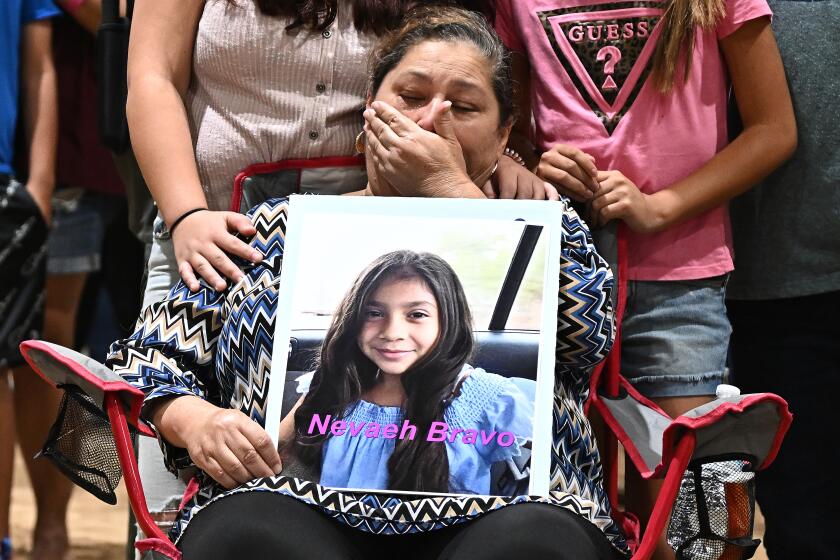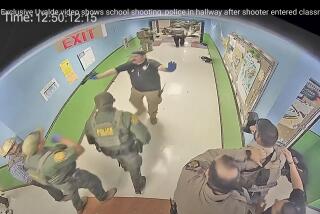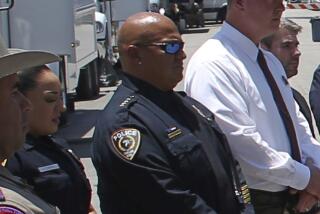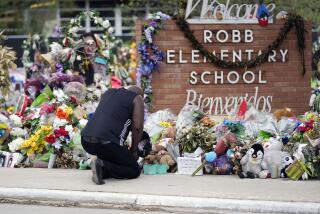Op-Ed: What my fifth-graders said to me about the school shooting in Uvalde
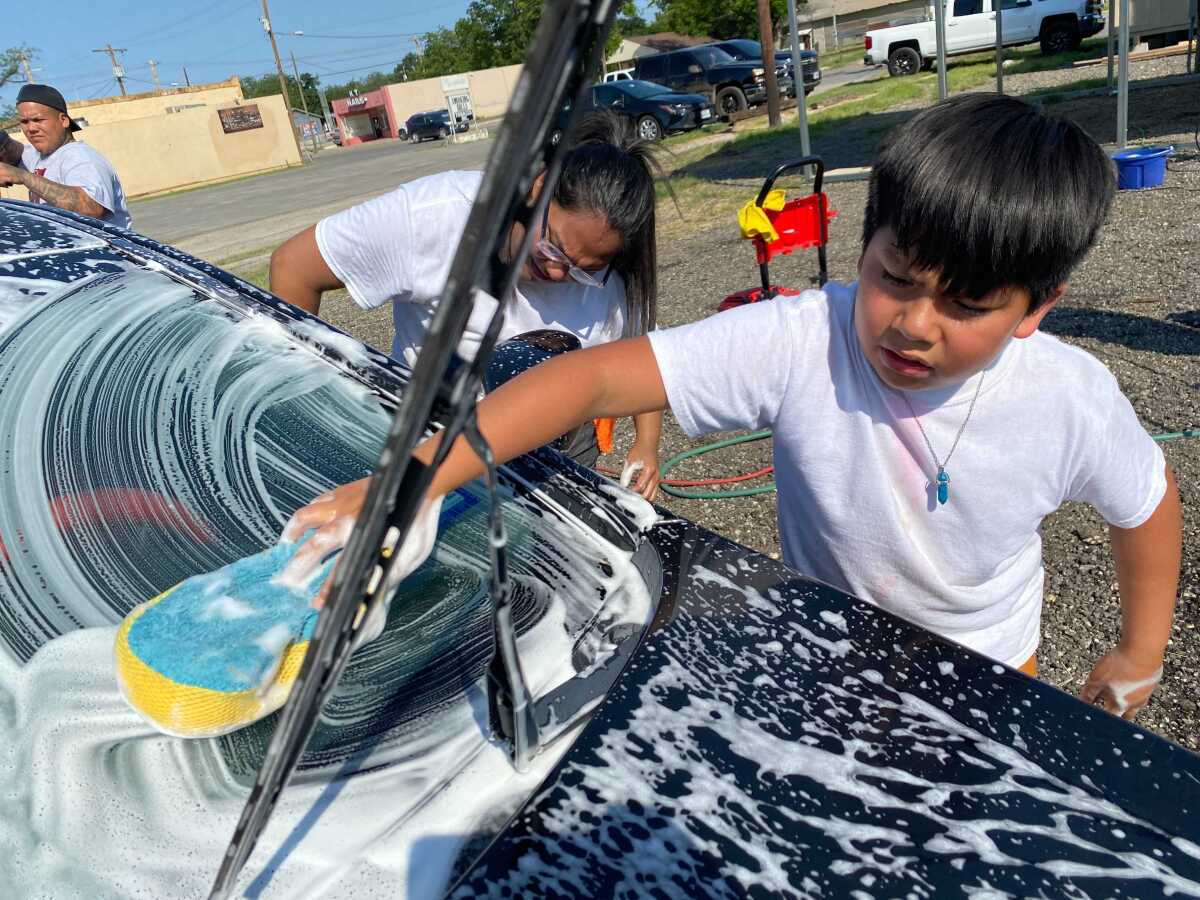
At the end of an emotional week, my brief lesson on Memorial Day included asking my fifth-graders to consider our nation’s fallen heroes on Monday. Then I got them packed up to go.
We hadn’t discussed the shootings all week. The truth was I didn’t know how to tell my class about the 19 children and two teachers who were murdered Tuesday in Uvalde, Texas. Something about it felt too raw to explain to 10-year-olds.
And the truth was that I was still processing it. If I couldn’t deal with it, how would they?
But as the bell rang, prompting what should have been a mass exodus, a hand was still raised.
“Mr. Courtney,” said N., a bright boy with a strong moral compass. “I think we ought to take a few moments to think about the kids in Texas, and the people in Buffalo too,” referring to the 10 victims a mass shooter had killed in New York less than two weeks ago. “They are heroes to me.”
“Of course, N.,” I said, studying his face and those around him. It was now suddenly obvious that they had all heard about the shooting. Of course, they had heard. Kids hear everything.
Despite the bell’s call to freedom, my entire class sat unmoving. More hands flew up. The first one belonged to J., our school’s student council secretary.
“It’s like there’s a war out there guys,” she told our class. “I heard this guy in Texas was the same age as my cousin! He had basically machine guns. Two of them.”
“He killed a whole classroom,” said N.
Wallow in grief. Be horrified. Be angry. Be committed to the idea that we’re all in the line of fire, that it could have been any of us, anywhere, at any time, because no one and nowhere is safe.
A. interjected: “The people in Buffalo are heroes too. They were just shopping. It was a white dude, and he hated Black people.”
“No offense Mr. C, he said, “But some white people out there think that stuff.”
“None taken,” I told him.
It was late, and I knew parents would be waiting, so I dismissed the class with a wave of my hand. “We’ll discuss it some more on Tuesday, ’K?”
Kids left. But N. and J. stayed.
I asked: “You believe victims of these mass shootings deserve to be memorialized?”
N. thought a while.
“Mr. Courtney,” he said. “Remember when you told us about 9/11?”
“Yeah,” I said.
“And about the Revolutionary War, the Civil War and everything? And you told us how there are all of these memorials in D.C. when you were there?”
“Yes.”
“These kids weren’t even soldiers. They died just being kids. So I’m going to think about them Monday. And I’m going to hope nobody I know winds up like that.”
“How can we fix it?” I asked.
“Well, I don’t want you wearing a gun, Mr. C,” J. said with a huff and a nod to the absurd notion that teachers should be armed. “No offense.”
“None taken, kid.”
On the drive home, the news blasted out of my radio. Pundits opined about what should and should not be done to prevent another shooting. Every flag I passed fluttered at half staff. But all I could think about was what my students had said.
What must it be like to be a child, hearing that a classroom of students was murdered by a teenager who legally bought two semi-automatic weapons? Or that adults were considering giving their teacher a gun to help prevent potential classroom shootings? What must a kid think of the nearly 9 out of 10 American adults who say they want universal background checks but can’t seem to do much more about it beyond thoughts and prayers?
Since Columbine, more than 311,000 children have experienced gun violence at school. And 331 schools have been turned into battlegrounds. At least 185 students, educators and other people have been killed. And 369 more have been injured.
The median age of the shooters? Sixteen.
Texas Gov. Greg Abbott and other pro-gun politicians should be forced to see the carnage caused by assault weapons in school shootings.
These are statistics for war, a war now perpetrated against our nation’s children in their classrooms. Here’s what it really is: a war crime against kids.
Like J. and N., I am no soldier. I am just a fifth-grade teacher. I’ve never experienced the horrors of war, but we’ve had our share of lockdowns while we were supposed to be doing fractions.
On Monday, I will once again take time to honor those fallen American heroes who gave all for our freedom. N., J. and my other fifth-graders will join me. And our list of those we honor will include those fallen little heroes who have been taken from us not by a foreign enemy — but by a minority of adults concerned more about their right to sell and bear arms than preventing the mass shooting of children in our midst.
The students who have died in an undeclared war are now my classroom’s Memorial Day heroes too.
Thomas Courtney is a fifth-grade teacher and a 2021 San Diego Unified School District teacher of the year.
More to Read
A cure for the common opinion
Get thought-provoking perspectives with our weekly newsletter.
You may occasionally receive promotional content from the Los Angeles Times.
